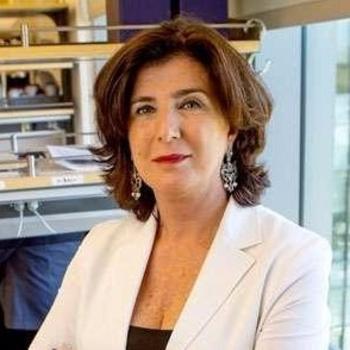Bio
Maria Grazia Roncarolo, MD is the George D. Smith Professor in Stem Cell and Regenerative Medicine, Professor of Pediatrics and of Medicine, director of the Center for Definitive and Curative Medicine, and co-director of the Institute for Stem Cell Biology and Regenerative Medicine.
Dr. Roncarolo leads efforts to translate scientific discoveries in genetic diseases and regenerative medicine into novel patient therapies, including treatments based on stem cells and gene therapy.
A pediatric immunologist by training, she earned her medical degree at the University of Turin, Italy. She spent her early career in Lyon, France, where she focused on severe inherited metabolic and immune diseases, including severe combined immunodeficiency (SCID), better known as the "bubble boy disease." Dr. Roncarolo was a key member of the team that carried out the first stem cell transplants given before birth to treat these genetic diseases.
While studying inherited immune diseases, Dr. Roncarolo discovered a new class of T cells. These cells, called T regulatory type 1 cells, help maintain immune system homeostasis by preventing autoimmune diseases and assisting the immune system in tolerating transplanted cells and organs. Dr. Roncarolo completed the first clinical trial using T regulatory type 1 cells to prevent severe graft-versus-host disease in leukemia patients receiving blood-forming stem-cell transplants from donors who were not genetic matches.
Dr. Roncarolo worked for several years at DNAX Research Institute for Molecular and Cellular Biology in Palo Alto, where she contributed to the discovery of novel cytokines, cell-signaling molecules that are part of the immune response. She studied the role of cytokines in inducing immunological tolerance and in promoting stem cell growth and differentiation.
Dr. Roncarolo developed new gene-therapy approaches, which she pursued as director of the Telethon Institute for Cell and Gene Therapy at the San Raffaele Scientific Institute in Milan. She was the principal investigator leading the successful gene therapy trial for SCID patients who lack an enzyme critical to DNA synthesis, which is a severe life-threatening disorder. Based on the results of this trial, gene therapy for ADA-SCID has obtained Orphan drug status from both the FDA and EMEA and it was licensed to Glaxo Smith Klein, which has received European Commission approval to market under the name of Strimvelis. Under her direction, the San Raffaele Scientific Institute has been seminal in showing the efficacy of gene therapy for otherwise untreatable inherited metabolic diseases and primary immunodeficiencies.
Dr. Roncarolo established the Stanford Center for Definitive and Curative Medicine to cure patients with currently incurable diseases through the development of innovative stem cell-and gene-based therapies.


